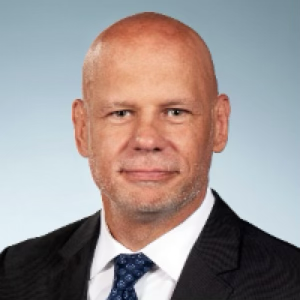
Bernd Geels
Forensic science is a discipline in which the scientific method is used to investigate crimes and examine evidence that may be presented within a legal setting, such as a court of law. Forensic science encompasses many disciplines, including fingerprint and DNA analysis, forensic anthropology, and wildlife forensics.
Regardless of their specialization, forensic scientists address a common set of issues and goals in their work. These include conducting investigations to create reliable results, communicating their findings to non-expert audiences such as juries, effectively applying new technologies, and being open to continued learning as the field of forensic science evolves.
Among the many fields within forensic science is forensic medicine. Forensic medicine is a specialized field that combines medicine, criminal justice, and law enforcement. Forensic medicine practitioners use medical and scientific procedures to analyze evidence from crime victims. These victims may be dead or alive. Their first encounters with living victims may occur in hospitals or at crime scenes. Such practitioners may assess injuries in surviving victims and determine the cause of death for deceased individuals. Forensic medicine may be applied to assess individuals who have been injured or killed by some factor, such as trauma or intoxication, and people suspected of injuring or killing others.
Given the variety of crimes, weapons, and motives, forensic medicine practitioners may need to frequently draw upon a substantial repository of knowledge to complete their work. Knowledge of weapons, disease processes, and how the human body responds to injury can all prove critical to a practitioner’s success.
Graduates of forensic science programs who specialize in forensic medicine may pursue various careers. They may fill roles including crime laboratory supervisor, crime scene investigator, forensic DNA analyst, forensic laboratory director, and forensic toxicologist. Forensic medicine practitioners may advance their careers by pursuing formal education up to the doctoral level and accruing on-the-job experience.
Those interested in becoming a forensic medicine practitioner should read on to learn about admissions requirements, common coursework, and information about institutional accreditation. This page offers a tour of online and in-person associates, baccalaureate, and advanced degree programs in forensic science, focusing on forensic medicine.

Dr. Gregory McDonald is the dean of the School of Health Sciences and a professor and chairman of the Department of Forensic Medicine and Pathology at the Philadelphia College of Osteopathic Medicine. He is also the program director for the master’s of science in forensic medicine program at PCOM and serves as the chief forensic pathologist at the Montgomery County Coroner’s Office.
In his career, Dr. McDonald has held significant leadership positions, including vice chairman and chairman roles at the American Osteopathic Board of Pathology. He holds a DO degree from the Philadelphia College of Osteopathic Medicine and completed a residency in anatomic pathology at Lankenau Hospital and a forensic pathology fellowship at the University of Pennsylvania and Philadelphia’s medical examiner’s office. He is board-certified in anatomic and forensic pathology, performing over 8,000 autopsies and being an expert witness in more than 800 court cases.
ForensicsColleges.com: What is something you wish the public understood about forensic medicine programs?
Dr. McDonald: I usually start by telling people what it is not. Forensic medicine is not forensic science. There are plenty of really good forensic science programs around, but those concentrate on bench work in laboratories such as toxicology, working out DNA samples, blood spatter evidence, etc. Those are necessary skills in forensics, and we teach some of the basics of forensic medicine, but our program focuses more on forensic pathology.
I always say that our program’s central focus is the victim. Most times, they are deceased, but sometimes they are alive. We concentrate more on medical aspects and work to determine why wounds were caused, what natural disease processes may have contributed to or caused their death, and sometimes even the time of death.
ForensicsColleges.com: What advice would you give to aspiring forensic medicine students?
Dr. McDonald: Brush up on your medical and scientific terminology. So much of this job is about knowing the language. If you learn those basic rules of nomenclature, that is helpful as you start your career and is something I see is oftentimes missing. People who come to us with an undergraduate degree don’t always know the medical terminology. They may be good at basic science concepts, but this area is lacking. And, just like anything else, have an open mind. Understand that some courses you may take may not be as exciting as you see on TV, but those are just as important, sometimes more important.
The Bureau of Labor Statistics (US BLS) notes that individuals seeking to work in the forensic science profession typically need a minimum of a bachelor’s degree and on-the-job training. Those seeking greater career advancement opportunities and higher pay often will need an advanced degree. Read on to learn more about featured degree and certificate programs in forensic medicine.
University of Maryland offers a full-time, non-thesis master of science (MS) degree in forensic medicine. This program is made possible through a collaboration between the University of Maryland and the State Office of the Chief Medical Examiner. The curriculum includes classroom and online lectures, case discussions, and laboratory experience.
Curriculum topics include forensic pathology, general pathology, forensic autopsy, medico-legal death investigation, forensic toxicology, forensic radiology, forensic odontology, and forensic anthropology.
Graduates may work in several areas, including medicolegal death investigation, forensic toxicology, police organizations, prosecutors’ offices, and university forensic science departments. They also have the background necessary to subsequently enter medical school and pursue a specialization in forensic pathology.
Boston University offers a 38-credit biomedical forensic sciences program (BMFS) designed to train students in several disciplines relevant to both crime scene investigation and evidence analysis. The curriculum comprises three main study topics: core curriculum, forensic laboratory classes, and elective coursework. The program exposes students to multiple forensic science topics, including but not limited to human biological evidence and DNA analysis, pathology, medicolegal death investigation, criminal law and ethics, and crime scene investigation. Graduates may seek careers in numerous settings, including crime laboratories, medical examiner officers, law enforcement, and laboratories.
University of North Texas offers a 19-credit forensic science certificate program. This program offers courses in UNT’s biological sciences, chemistry, and criminal justice departments. Students must hold a BS degree in biology, biochemistry, or chemistry to be eligible for admission.
Certificate requirements include a forensic science internship and satisfactory completion of the forensic science assessment test. Internships are available in various settings including crime labs, forensic chemistry labs, and forensic DNA labs.
Philadelphia College of Osteopathic Medicine offers a highly experiential, two-year master of science (MS) forensics program. This program, designed for individuals with an undergraduate degree and a background in the sciences, consists of both in-person and online coursework. The program trains students in the analytic and critical thinking skills needed to become medical and legal death investigators. The curriculum focuses on evaluating both live and deceased individuals.
Coursework includes forensic pathology, research design and methodology, law and evidentiary procedure, and principles of forensic medicine. Additional coursework covers topics such as forensic anthropology, forensic odontology, forensic entomology, toxicology, arson and fire investigation, and evaluation of sexual assault victims. First-year students attend classes Fridays through Sundays one weekend per month. Online coursework begins in the summer of the second year of study.
Here are four additional distance-based forensic programs:
National University offers a master’s of forensic sciences (MFS) degree. This program features the study of basic human anatomy, the process of death investigation, the analysis of disease and trauma, and the identification of unidentified dead people. Students may choose one of two specializations. The criminalistics specialization includes courses in trace evidence, advanced forensic toxicology, forensic serology and DNA, and forensic anthropology. The investigation specialization focuses on advanced forensic investigative techniques. Those pursuing the criminalistics specialization must have an undergraduate degree in a laboratory science. Students must complete at least 54 quarter units to graduate.
University of Florida College of Medicine offers a 37-credit online master of science in medical sciences with a concentration in forensic medicine. It is the first completely online advanced degree program of its kind in the United States. This program is designed for professionals interested in careers in forensic medicine, forensic pathology, and medicolegal death investigation. The curriculum focuses on skills including the application of forensic medicine in the process of death investigation, processing of crime scenes, professional report writing, and providing expert witness testimony. This program features both thesis and non-thesis options.
Syracuse University offers a 36-credit \ master of science degree in biomedical forensic sciences. This pre-medical post-baccalaureate program is designed for students who wish to enhance their competitiveness when applying to medical school. The program features close collaboration between students and faculty. This flexibility permits students to tailor their studies to their individual goals, and field study opportunities in settings such as the FBI, US DEA, crime labs and medical examiner’s offices. Graduates may pursue careers in pathology, toxicology, DNA analysis, and forensic biology, chemistry or anthropology.
Stevenson University offers a fully online, 36-credit master’s degree in forensic science. The curriculum provides students the knowledge to identify, collect, and analyze forensic data and report this information in legal settings. Students also train in the quality assurance, quality control, and safety procedures characteristic of modern, accredited forensic science laboratories. Students may select one of two concentrations.
The forensic biology concentration trains practitioners in examining and analyzing DNA, serological, and immunological evidence. The forensic chemistry concentration trains professionals to analyze chemical and trace evidence and describe the analyses necessary to isolate and identify drugs and toxic substances.
While forensics curricula vary according to the academic degree level and specialization, programs must feature a certain collection of core coursework to receive accreditation and prove competitive in the higher education marketplace. Core courses provide students with the training necessary to work in a forensics career. Students who seek a degree beyond an associate’s degree often will develop specialized subject knowledge in topics such as forensic biology, forensic chemistry, DNA analysis, and pathology.
In addition to core courses, students will typically complete a set of electives to broaden and potentially specialize their knowledge. Given the nature of the field of forensics, there is a vast variety of elective courses a student may take. A selection of such courses appears below:
Upon completion of a degree or certificate program, some forensics professionals will seek out professional certification. Though forensic science professionals are not necessarily required to be licensed or certified, the professional recognition implicit in licensure and certification can enhance a person’s employment prospects and career advancement opportunities. Several forensic specialty boards offer certification, including:

Bernd Geels
Bernd Geels is a Berlin, Germany-based freelance writer and artist. He holds an undergraduate degree in atmospheric science and two graduate degrees. He completed his most recent graduate degree in international environmental studies at the Monterey Institute of International Studies in 2011. He is interested in healthcare, climate change, marine conservation, indigenous science, and refugee issues. You can reach him directly at [email protected].

Kimmy Gustafson
Kimmy Gustafson’s expertise and passion for investigative storytelling extends to the world of forensics, where she brings a wealth of knowledge and captivating narratives to readers seeking insights into this intriguing world. She has interviewed experts on little-known topics, such as how climate crimes are investigated and prosecuted, and has written for ForensicsColleges.com since 2019.
Kimmy has been a freelance writer for more than a decade, writing hundreds of articles on a wide variety of topics such as startups, nonprofits, healthcare, kiteboarding, the outdoors, and higher education. She is passionate about seeing the world and has traveled to over 27 countries. She holds a bachelor’s degree in journalism from the University of Oregon. When not working, she can be found outdoors, parenting, kiteboarding, or cooking.